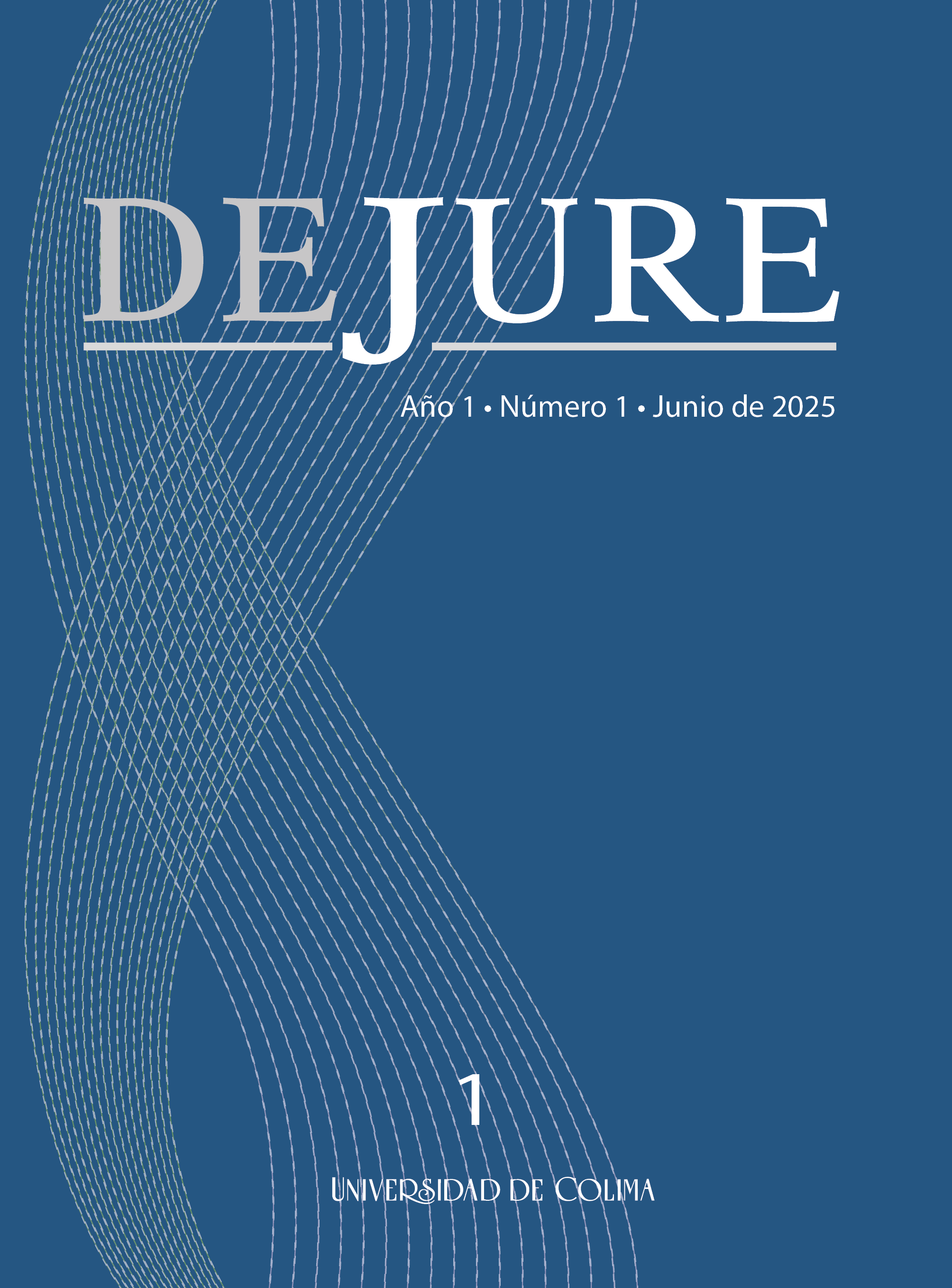Energy Democracy in Mexico: Perspectives from Human Rights
Keywords:
energy democracy, human rights, energy transition, prior consultation, energy justice, energy sovereignty, renewable energies, energy governance, indigenous peoples, citizen participationAbstract
The energy transition is a central axis of public policies and international regulatory frameworks aimed at mitigating climate change and reducing dependence on fossil fuels. However, its implementation has led to structural inequalities, particularly affecting Indigenous and rural communities that have been excluded from decision-making processes. In Mexico, large-scale energy projects have failed to ensure equitable energy access, instead exacerbating socio-environmental conflicts due to the lack of prior consultation and effective participation mechanisms (Ochoa & Graizbord, 2016; Valenzuela & Olivera, 2024). This article analyzes energy democracy in Mexico using the rights unpacking methodology, assessing its compliance within national and international legal frameworks. It argues that the energy transition cannot be limited to replacing fossil fuels with renewables but must involve a structural transformation of energy governance to guarantee citizen participation and the protection of collective rights. To this end, the study examines key legal instruments, such as the Universal Declaration of Human Rights, ILO Convention 169, the Paris Agreement, and the Mexican Constitution, as well as case studies on energy conflicts in the Isthmus of Tehuantepec, the Yucatán Peninsula, and the Tren Maya project. These cases highlight the urgent need to reform Mexico’s legal framework and strengthen distributed generation and community energy management models. Finally, the article proposes legislative reforms to establish a more equitable and sustainable energy model, ensuring that the energy transition is not merely a technical goal but a process rooted in the principles of social justice, citizen participation, and sustainability.
Downloads
References
Altamirano, A. (2020). México y su transición energética: un cambio en pro de la energía renovable. Latin American Developments in Energy Engineering, 1(1), 26-42. https://doi.org/10.17981/ladee.01.01.2020.3
Araya, P., González, M. y Suárez, A. (2023). Una mirada multiescalar de las transiciones energéticas justas. Reflexión a partir de la revisión de marcos interpretativos. Collectivus, 10(1), 111-146. https://doi.org/10.15648/collectivus.vol10num1.2023.3567
Calvillo, A. y Ávila, M. (2021). La transición energética en México: entre la centralización y la participación ciudadana. Iniciativa Climática de México (ICM). https://iniciativaclimatica.org/publicaciones/transicion-energetica-mexico
Cárdenas, R. (2023). Un análisis crítico de la evolución del sector energético en México y factibilidad de la propuesta de reforma al sector eléctrico. Ciencia Latina Revista Científica Multidisciplinar, 7(5), 5713-5740. https://doi.org/10.37811/cl_rcm.v7i5.8171
Carreño, G. (2024). Democracia y transiciones energéticas en clave comunitaria. Una aproximación documental para pensar el trabajo social en Colombia. Trabajo Social, 26(2), 241-260. https://doi.org/10.15446/ts.v26n2.115492
Castro Ortega, E. A. (2020). El método de desempaque para analizar casos de violaciones a derechos humanos. Revista Métodhos, 1(18), 83–106. https://revista-metodhos.cdhcm.org.mx/index.php/metodhos/article/view/137
Centro Mexicano de Derecho Ambiental [CEMDA]. (2018, octubre 25). Piden a la Suprema Corte cancelar permisos a Eólica del Sur por violar derechos humanos de comunidades indígenas. https://cemda.org.mx/piden-a-la-suprema-corte-cancelar-permisos-a-eolica-del-sur-por-violar-derechos-humanos-de-comunidades-indigenas/
Cervantes, D. (2023). The dispute over the energy transition in Mexico under dependent conditions. Argumentos Estudios Críticos De La Sociedad, (101), 87-108. https://doi.org/10.24275/uamxoc-dcsh/argumentos/2023101-04
Ferreira, V. (2023). Democracia energética: quadro conceptual e agenda de investigação para o caso português. Relações Internacionais, (79), 37-51. https://doi.org/10.23906/ri2023.79a04
Herrero, S. (2023). Pobreza energética y vivienda: una perspectiva de justicia social. Arbor, 199(807), a692. https://doi.org/10.3989/arbor.2023.807006
Hinojal, I., Gómez, A., Azurza, O., Lomas, E. y Arenaza, I. (2023). Democracia energética ante el colapso civilizatorio: comunidades energéticas del norte y del sur. Política Y Sociedad, 60(1), e79457. https://doi.org/10.5209/poso.79457
Krause, F., Bossel, H., & Müller-Reißmann, K.-F. (1980). Energie-Wende: Wachstum und Wohlstand ohne Erdöl und Uran. Frankfurt am Main: S. Fischer Verlag.
Ochoa, R. y Graizbord, B. (2016). Caracterización espacial de la pobreza energética en México. Un análisis a escala subnacional. Economía Sociedad Y Territorio, 16(52), 289-324. https://doi.org/10.22136/est002016465
Organización de las Naciones Unidas (ONU). (1987). Informe Brundtland: Nuestro futuro común. Comisión Mundial sobre Medio Ambiente y Desarrollo. Recuperado de https://www.un.org/es/impacto-acad%C3%A9mico/sostenibilidad
Organización de las Naciones Unidas (ONU). (2007). Declaración de las Naciones Unidas sobre los Derechos de los Pueblos Indígenas. https://www.un.org/esa/socdev/unpfii/documents/DRIPS_es.pdf
Organización de las Naciones Unidas (ONU). (2015). Transformar nuestro mundo: la Agenda 2030 para el Desarrollo Sostenible. https://sdgs.un.org/es/goals/goal7
Organización Internacional del Trabajo (OIT). (1989). Convenio sobre pueblos indígenas y tribales en países independientes, 1989 (núm. 169). https://www.ilo.org/dyn/normlex/es/f?p=NORMLEXPUB:12100:0::NO::P12100_ILO_CODE:C169
Organización Internacional del Trabajo (OIT). (2024). Directrices sobre consulta previa, libre e informada en proyectos energéticos. https://www.ilo.org/global/publications/WCMS_804345/lang--es/index.htm
Ramos, A., Figueroa, M., Gallardo, J. y Almaraz, S. (2017). Energías renovables y el hidrógeno: un par prometedor en la transición energética de México. Investigación Y Ciencia De La Universidad Autónoma De Aguascalientes, (70), 92-101. https://doi.org/10.33064/iycuaa2017701856
Sovacool, B. K. (2013). Energy democracy: Goals and policy instruments for sociotechnical transitions. Energy Policy, 57, 1–10. https://doi.org/10.1016/j.enpol.2013.01.013
Valenzuela, J. y Olivera, C. (2024). Energía y justicia ambiental: Análisis crítico de la política energética en México. Revista Latinoamericana de Política Energética, 12(1), 45-67. https://doi.org/10.22201/rlpe.2024.12.1.891
Yin, R. K. (1994). Case Study Research: Design and Methods (2ª ed.). Thousand Oaks, CA: Sage Publications.
Published
How to Cite
Issue
Section
Categories
License
Copyright (c) 2025 José Israel Herrera

This work is licensed under a Creative Commons Attribution-NonCommercial-ShareAlike 4.0 International License.
De Jure permite distribuir, remezclar, adaptar y crear a partir del material en cualquier medio o formato, únicamente con fines no comerciales y siempre que se le dé crédito al creador. Si remezcla, adapta o crea a partir del material, debe licenciar el material modificado bajo términos idénticos. CC BY-NC-SA, incluyendo los siguientes elementos:
BY: se debe dar crédito al creador.
NC: Solo se permiten usos no comerciales de la obra.
SA: Las adaptaciones deben compartirse bajo los mismos términos.



